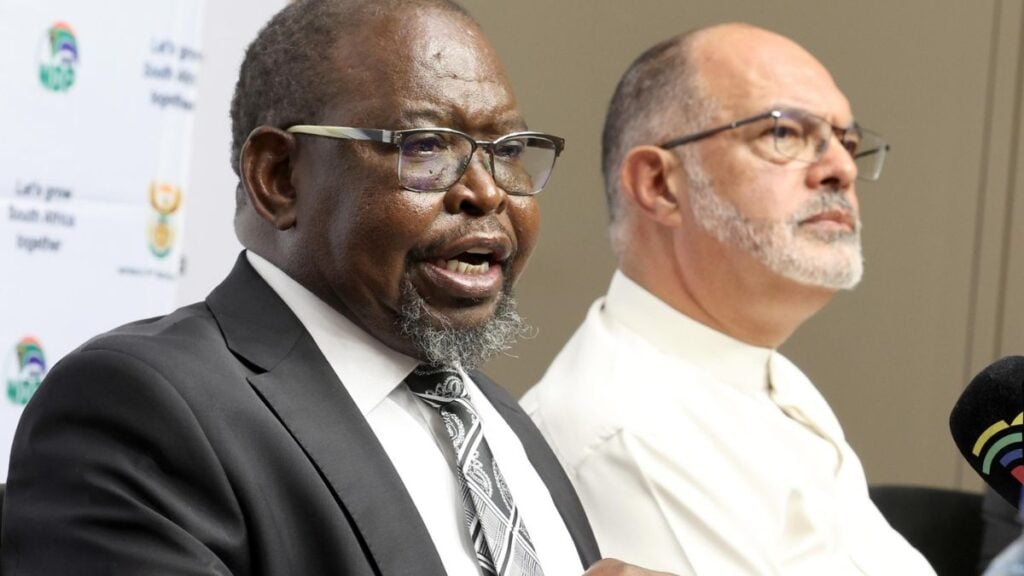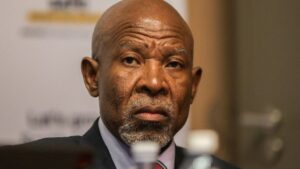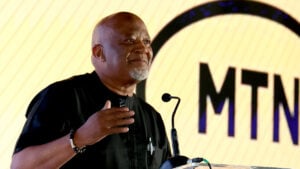Godongwana warns about a wealth or ‘apartheid redress’ tax in South Africa

The Finance Minister has shut down calls for a wealth tax and an apartheid-era redress tax, noting that South Africa already taxes the rich heavily.
He also warned that any move to increase these taxes or to introduce the ones being called for would cost the economy billions.
In March, the Parliamentary Budget Office (PBO) said the National Treasury should pursue additional taxes on the wealthy in South Africa instead of putting pressure on households through a VAT hike.
The PBO argued evidence showed a wealth tax could raise around R38 billion for the fiscus. This would be enough to counter the approximately R30 billion shortfall after the axing of the VAT hike.
However, in the third reiteration of the 2025 National Budget Speech, Godongwana noted that fuel taxes would be adjusted for inflation to balance the withdrawal of the VAT hike.
Following this, in a parliamentary Q&A session in June, the EFF questioned the reasons for the minister’s continued refusal to introduce a wealth tax and/or apartheid redress tax.
This is despite what the EFF said is “evidence and recommendations suggesting their effectiveness in mobilising fiscal resources for redistribution and development.”
It also asked whether the National Treasury’s policy position is to shield ultra-wealthy individuals. In response, Finance Minister Enoch Godongwana said there is no policy to shield ultra-wealthy individuals.
He added that South Africa has a comprehensive and progressive income tax system, whereby those who earn more income are taxed at a higher rate.
To illustrate the progressivity of the income tax system, Godongwana noted that it is worth citing tax statistics.
“This shows that taxpayers with a taxable income over R1 million per annum make up only 6.7% of the personal income base; yet, they contribute 47.5% of the total personal income tax revenue,” he said.
More harm than good

Godongwana also noted that, in terms of wealth, South Africa already has many instruments that tax wealth comprehensively.
These include estate duty (on assets at death), donations tax (on asset gifts), securities transfer tax (on equity transfers), and transfer duties (on property transactions).
In addition, municipalities impose property rates on land and buildings. The four national wealth taxes collectively contributed R22 billion in 2021/22, R22.6 billion in 2022/23, R19.4 billion in 2023/24, and R21.3 billion in 2024/25.
Though this only accounts for about 1.15% of total tax revenue, it compares favourably to the OECD average of 0.5% from similar taxes.
South Africa also taxes capital gains, a type of wealth tax, generating R15.6 billion in 2019/20 and R16.4 billion in 2020/21.
According to Godongwana, this illustrates that the country already has a broad system to capture income and wealth. He added that international experience with wealth taxes has mainly been negative.
“Several countries have abandoned or reduced wealth taxes due to high administrative costs, limited revenue generation, capital flight, and complexity,” he said.
Currently, only Norway, Switzerland, Spain, and Colombia maintain what could be called true wealth taxes.
In contrast, most countries opt for robust income tax regimes supplemented by capital gains taxes, which Godongwana considers more efficient.
Referencing a 2018 OECD study, Godongwana argued that countries with well-designed income tax systems, including capital gains, are better at redistributing wealth than those relying on direct wealth taxes.
“Income tax is the most effective way to tax the wealthy. It generates significantly more revenue for the fiscus in a more efficient and cost-effective manner,” he said.
National Treasury echoed these concerns and warned that introducing a wealth tax could backfire by shrinking the tax base.
Treasury stressed that if just 10% of high-income earners chose to leave the country in response to a wealth tax, South Africa could lose up to R49 billion annually in personal income tax alone.
This figure doesn’t include the other taxes these individuals pay, nor does it factor in the broader economic impact of such an exodus.
According to the Treasury’s projections for 2025/26, the top three income tiers are expected to contribute more than 60% of all personal income tax, close to R500 billion.
In contrast, combined existing wealth taxes bring in between R20 billion and R24 billion each year.
Treasury noted that the potential economic fallout from implementing a wealth tax far outweighs the limited revenue it might generate.




















